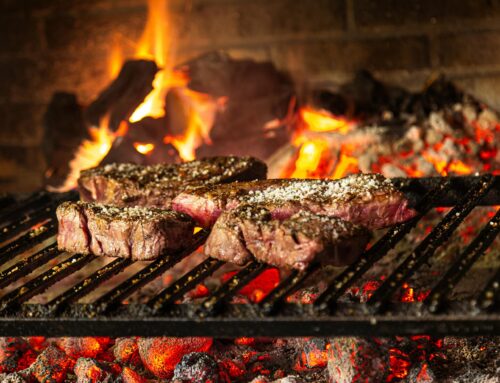Brighton Camp, tucked high in Utah’s Wasatch Mountains, taught me more than how to pitch a tent or start a fire—it taught me to respect the land under my boots. The forest, the trails, and the starry skies left a lasting impression on me, not just because of their beauty, but because they showed me how important it is to protect these places for others to enjoy.
What Has Changed in Outdoor Culture
Decades ago, camping looked very different:
-
Campers built their own fire rings with rocks.
-
Cooking was done over open flames—no backpacking stoves.
-
Fresh branches were cut to make beds.
Today, with more people than ever exploring the outdoors, we’ve had to shift. Our campsites, trails, and water sources can’t absorb the same levels of wear and tear. Low-impact camping has become the standard—not because it’s trendy, but because it’s essential.
What Is Low-Impact Camping?
Low-impact (or “Leave No Trace”) camping means minimizing your footprint. It’s not just about what you pack—it’s about how you think.
Key principles include:
-
Use established fire rings or skip the campfire altogether in dry areas.
-
Camp on durable surfaces like rock, gravel, or designated sites.
-
Pack out all trash, including food scraps and biodegradable waste.
-
Use portable stoves instead of cutting wood or burning large fires.
-
Avoid picking plants or disturbing wildlife.
-
Minimize noise to protect the peace of the environment.
Why It Matters for Future Generations
When you protect the environment, you’re not just doing it for yourself—you’re doing it so your children and grandchildren can stand beneath tall pines, listen to rushing streams, and watch wildlife without fear or fences.
Preparedness doesn’t just mean having food stored or gear packed. It also means being prepared to act as stewards of the places we might one day rely on. In a world with increasing population pressure and environmental risk, protecting our wilderness is part of long-term survival.
How to Incorporate This into Your Outdoor Life
-
Teach your kids early: Show them how to bury waste properly, carry out trash, and respect wildlife.
-
Use reusable gear: Metal utensils, cloth napkins, and refillable containers reduce waste.
-
Choose gear that lasts: Cheap gear often breaks and ends up in landfills.
-
Read up on local fire bans and trail closures before you go.
The outdoors has given so much to me—peace, adventure, self-reliance. My hope is that by sharing these thoughts and methods, you’ll pass them on too. Use the ideas in this blog and in your preparedness life to reduce harm, raise awareness, and set an example.
Because real survival isn’t just about you. It’s about us—all of us—and the world we leave behind.






